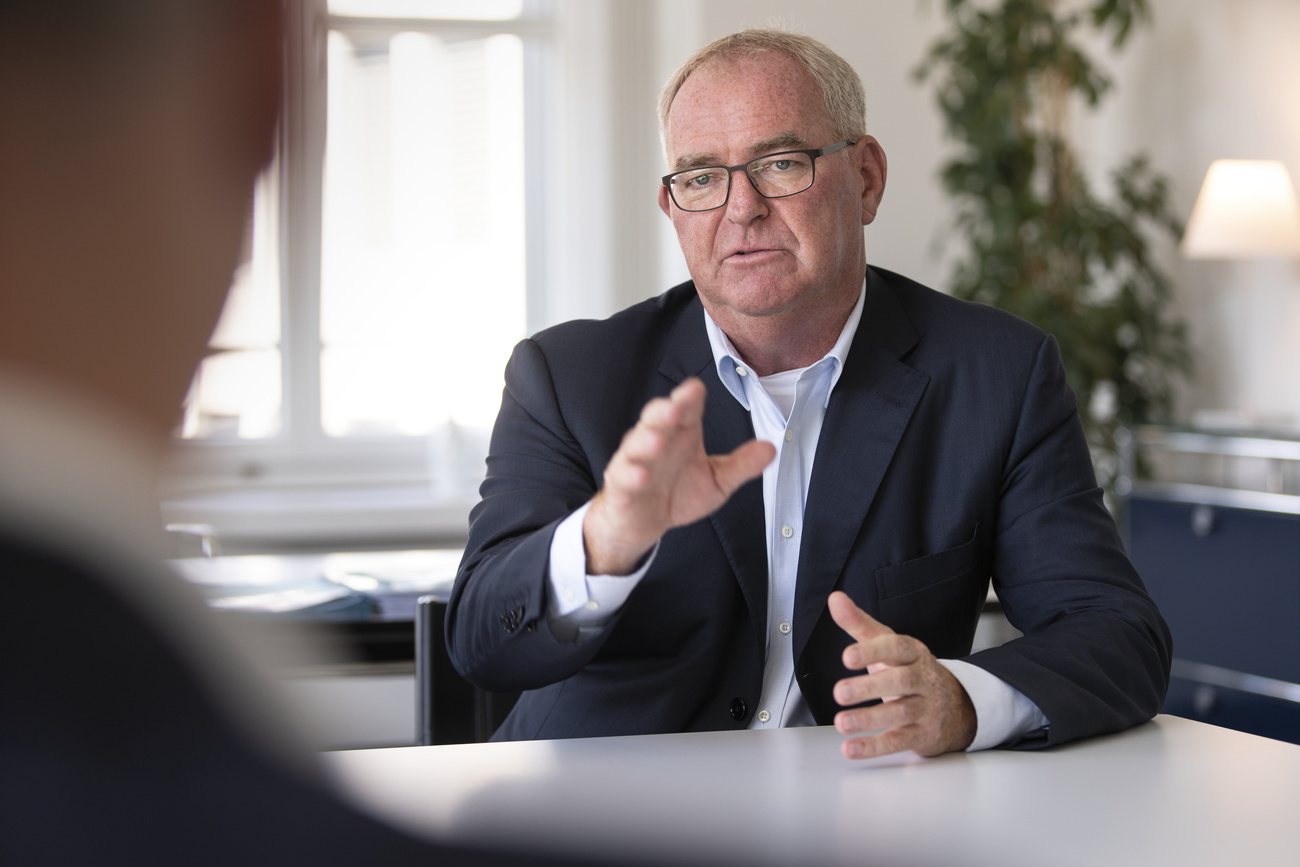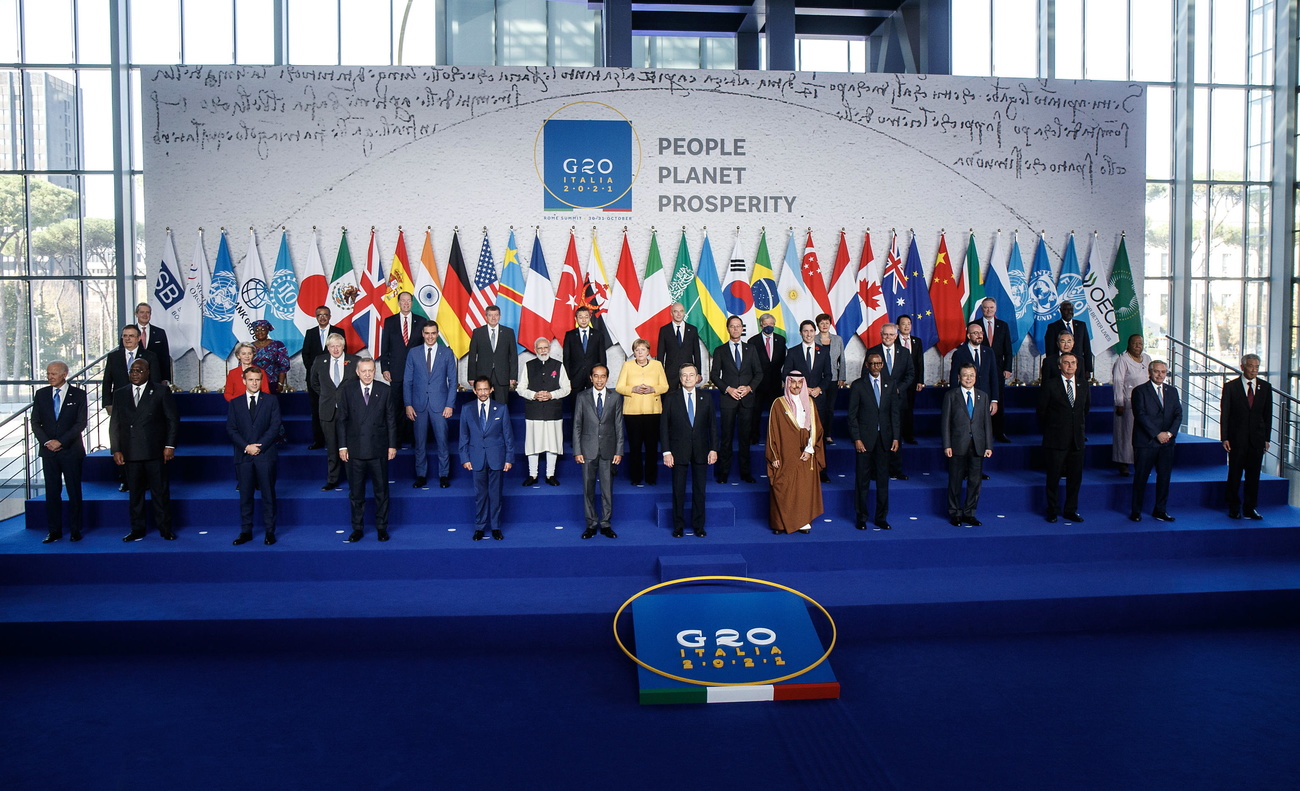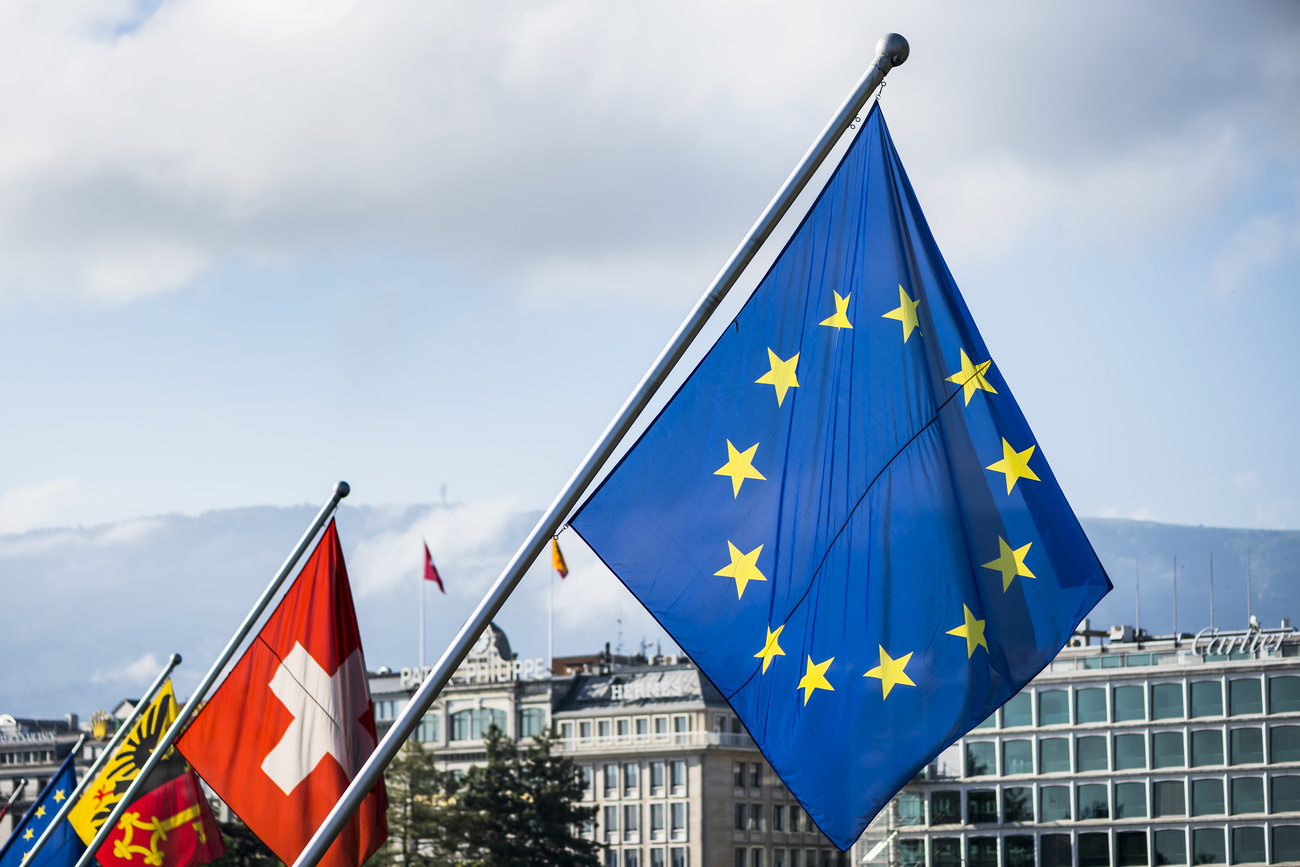Global 15% tax rate is ‘major challenge’ for Swiss firms, says top business leader

Corporate taxes, managing the Covid-19 pandemic and relations with the European Union – Christoph Mäder, president of the Swiss Business Federation (economiesuisse), discusses the big issues facing the Swiss economy.
In an interview with SWI swissinfo.ch Mäder also downplays the influence of Switzerland’s most powerful economic association on politicians.
SWI swissinfo.ch: What do you view as the main challenges facing the Swiss economy in the coming years?
Christoph Mäder: The future global minimum tax of 15% on the profits of large companies is a major challenge. The aim of this policy is to damage Switzerland’s competitiveness and benefit other countries which are less fiscally disciplined. As we can’t escape these new OECD rules, we must apply them as favourably as possible, for example, by abolishing other taxes such as stamp duties and by allowing bigger tax deductions.

More
Global corporate tax deal reshapes how Switzerland attracts multinationals
SWI: Are these rules so problematic? In big cantons like Zurich or Bern there won’t be any change; in other cantons such as Geneva and Vaud the increase will be only 1%.
C.M.: But in other cantons, like Zug or Nidwalden, the increases will be more than 3%. And for big companies each percentage point means considerable sums. On a more general level, given that costs are high in Switzerland, we absolutely must maintain our competitive taxes in order to be able to continue exporting.
Christoph Mäder has led economiesuisse since October 2020. He also sits on the boards of several big companies, including Bâloise Holding, Ems-Chemie Holding and Lonza Group. In the course of his career he has held a number of important roles at Syngenta, Sandoz and Novartis. He studied law at the University of Basel and is a licensed lawyer.
SWI: What about Switzerland’s energy supply, a matter that has recently been in the news after Economics Minister Guy Parmelin called on companies to prepare for power shortages in 2025?
C.M.: That is another major challenge. A stable supply is an absolute prerequisite to secure the competitiveness of our industries and our jobs. It is clear that the government’s forecasts were too optimistic. On the one hand, energy savings were overestimated; on the other, the development of demand for energy was underestimated. What’s more, decarbonisation solutions – electric mobility, for example – often prompt an increase in energy consumption.
SWI: How do you think the government and parliament have dealt with the Covid-19 pandemic?
C.M.: Switzerland’s record is mostly positive compared with many other countries. But the level of public debt is a source of concern. It’s essential that our generation gets on with reducing the debt caused by Covid without transferring it to future generations.
SWI: After the failure of the framework agreement with the EU, economiesuisse is encouraging the government to prioritise non-discriminatory participation for Swiss companies on the European market. How should this be achieved?
C.M.: It was the government which decided to break off negotiations for a framework agreement with the EU, so I would say it’s up to the government to find solutions. And to start without delay, because the bilateral agreements are constantly being eroded. But it should be noted that this task is particularly hard, and we shouldn’t expect miraculous solutions. In any case, economiesuisse is not pleading for a second attempt to reach a framework agreement. The best approach might be to rely on negotiations by sector.

More
Swiss reject framework agreement deal with EU
SWI: Some observers think Switzerland will systematically oppose any political alliance with the EU and that this is a dead end.
C.M.: For the negotiations to succeed, each party must be ready to make concessions without trying to cherry pick. In my view the government is well aware of this because it is interested in finding a stable long-term solution and avoiding Switzerland becoming isolated. But the path is difficult to find, particularly on the question of a political alliance. Moreover the strict line taken by the EU – “our way or no way” – doesn’t make Switzerland’s position any easier.
SWI: Should the Swiss government prioritise new free-trade agreements with non-European countries over trying to stabilise relations with the EU?
C.M.: I don’t think so. Both of these axes are important, and they must be pursued with equal intensity.
SWI: In referendums economiesuisse sometimes has to convince voters. What are you doing to improve your image among the public?
C.M.: Credibility is our sole trump card. We think that adopting well-argued positions inspires the public’s respect and as a result increases our credibility.
SWI: Political party financing in Switzerland is not very transparent, but it’s widely known that some big companies are significant donors.
C.M.: As you suggest, certain companies – not economiesuisse – contribute to party financing. I don’t see any fundamental problem with this situation, which is, by the way, not very different from what happens in other countries. And in December 2021 the government opened consultations on a new ruling on the transparency of political funding. This ruling would compel political parties represented in parliament to declare their revenue and donations from single contributors that exceed CHF15,000 ($16,000) a year.
SWI: How much money does your organisation invest each year in political campaigns?
C.M.: For strategic reasons we don’t publish those figures. When the new ruling enters force, we will abide by the legal requirements. In any case, it’s a complete illusion to imagine that we can “buy” political decisions. On the contrary, we have to put forward convincing arguments.

More
Politicians approve legislation for more funding transparency
SWI: The business lobbies are well organised and well financed. When it comes to drafting laws, do you have as much influence as the federal administration or even more influence than parliament and the seven-person government?
C.M.: I don’t completely agree with this premise. The federal administration has considerable resources at its disposal; recently, these resources have even been boosted. As for the federal parliament, it has doubtless lost some ground in recent years. Lawmakers tend increasingly to be more influenced by social trends than by the positions of their respective parties. At the heart of government, it is true that our positions are well represented but they are not the majority.
economiesuisse is definitely an influential player on the national stage, but we are in permanent competition with a growing number of interest groups, for example those who prioritise environmental issues. To sum up, there’s a real competition of ideas.
SWI: Is the president of economiesuisse in some ways an eighth member of the government?
C.M.: This is an old myth that has no foundation in reality.
SWI: Nonetheless, you are in very regular contact with the government and parliamentarians. For example, you join ministers on foreign trips more than anyone else.
C.M.: Maintaining regular contact with the government and members of parliament is an integral part of my role. Besides, these contacts go in both directions. As far as official trips are concerned, economiesuisse is responsible for assembling the economic delegations which accompany ministers. So as a matter of course, I am part of these delegations.
SWI: Do you defend liberal values or rather the interests of certain members? For example, are you in favour of compensatory payments relating to the purchase of fighter jets?
C.M.: economiesuisse is clearly in favour of economic liberalism. At the same time, we can sometimes adopt a pragmatic stance for certain sectors, as is the case in many other countries. So with that in mind, we support the compensatory payments without any qualms.
SWI: You were set to participate in the annual meeting of the World Economic Forum (WEF), which has been postponed again. What do you gain from these events?
C.M.: These meetings in Davos are unique opportunities to meet many other leaders and have in-depth discussions on subjects of common interest – measures against climate change, for example.
SWI: The cost of these meetings is in part met by public authorities. What are the benefits for the taxpayer?
C.M.: These events strengthen Switzerland’s reputation considerably. During the annual WEF meetings, the whole world is talking about Davos and Switzerland. What’s more, the presence of the whole – or almost the whole – government underlines the importance of these events for our country.
Translated from French by Catherine Hickley

In compliance with the JTI standards
More: SWI swissinfo.ch certified by the Journalism Trust Initiative










Join the conversation!